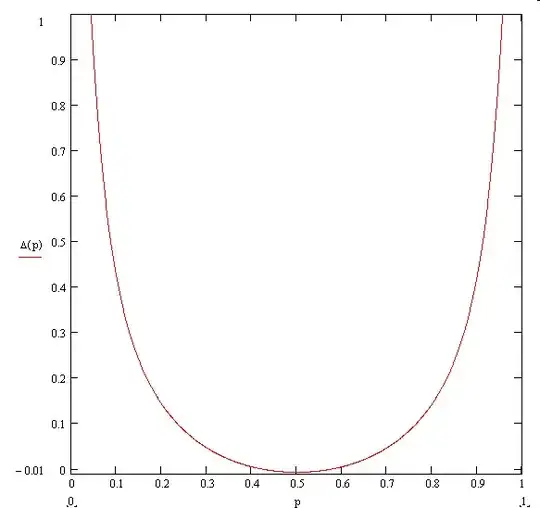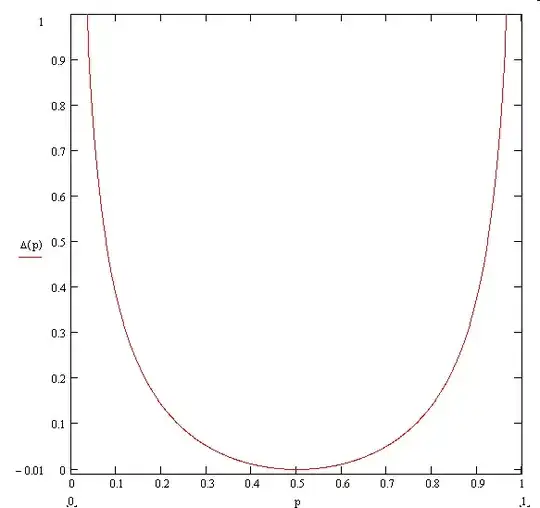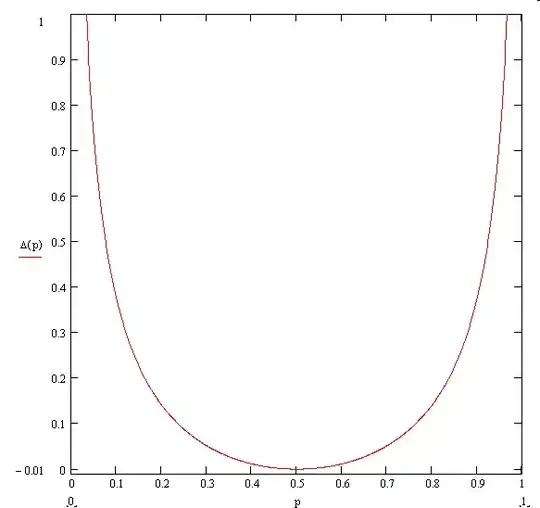Let $x_{n,p}(j)$ be the probability that a random variable distributed according to a binomial distribution with parameters $n \in \mathbf{N}_+$ and $p \in (0,1)$ takes the value $j \in \{0,1,\ldots,n\}$, i.e. $$x_{n,p}(j)=\binom{n}{j}p^j(1-p)^{n-j}.$$ Is it true that, independently of the value of $p$, we have that $$\sum_{j=0}^n x_{n,p}^2(j)=o(1)?$$
I am aware of Vandermonde identity which implies the claim holds true for $p=1/2$: indeed $\binom{2n}{n}=\sum_{i=0}^n \binom{n}{i}^2$, so that $$\sum_{j=0}^n x_{n,p}^2(j)=\sum_{j=0}^n \binom{n}{j}^2 \frac{1}{2^{2j}}\frac{1}{2^{2n-2j}}=\frac{1}{4^n}\binom{2n}{n}=O\left(\frac{1}{\sqrt{n}}\right),$$ where the last approximation has been obtained with Stirling's formula.
Does a similar result hold in general?


